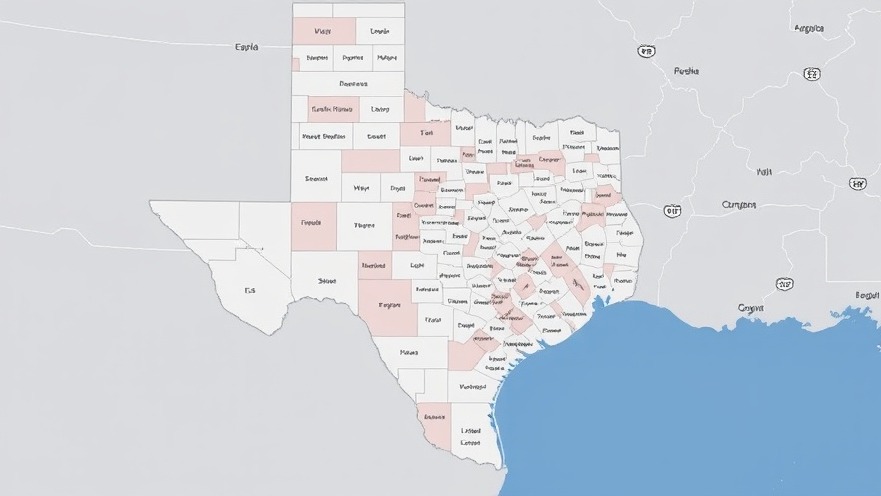
Texas Legislature's New Political Map: A Key GOP Victory
The recent adjournment of the Texas Legislature's second special session highlights significant gains for the Republican party, culminating in a freshly drawn congressional map intended to bolster GOP representation ahead of the upcoming elections. As lawmakers returned to the Capitol with a clear mandate, tensions flared as a result of a two-week walkout by Democratic representatives. This session not only aimed at redistricting but also addressed several socially conservative issues, which had previously found resistance in the legislature.
Conservative Wins and Oversights
While the Republican party celebrated their litany of victories, including the passing of abortion restrictions and a bill limiting restroom access for transgender individuals, some crucial subjects were left untouched. A noteworthy point of contention was the failure to regulate Texas's burgeoning hemp industry, which had initially sparked discussions for the special session. In a state known for its agricultural significance, the decision not to address this area illustrated the GOP's prioritization of pressing social issues over emerging economic trends.
Partisan Divisions and Heated Debates
The atmosphere within the legislature became increasingly fractious as lawmakers debated key issues. The strain of a one-party government was palpable, and the frustration among Democratic representatives revealed the growing disenfranchisement felt within their constituencies. Representative Vince Perez aptly pointed out that such partisan maneuvers could lead to a disconnection between representatives and the voices they are meant to serve. As new punitive measures targeting legislative quorum breaks echoed through the chambers, calls for a more inclusive approach continued to be overshadowed by a tide of conservative laws.
Challenges Ahead: Legal Battles and Public Reaction
As the dust settles post-session, the battle is far from over. Democratic lawmakers have committed to contesting the new congressional map in court, arguing it undermines the votes of Texans of color. This legal challenge underscores the ongoing struggle surrounding voter representation in Texas, a theme that resonates deeply as the state prepares for midterm elections in 2025. With tensions flaring between parties, citizens are left with questions about the efficacy of their representation and the future of voting rights.
Reflections on Legislative Outcomes
The session’s outcomes reflect broader trends in Texas politics, showcasing not only the consolidation of conservative wins but also the stark divisions that appear more pronounced than ever. As GOP lawmakers prepare to celebrate their achievements, dissenting voices caution against the ramifications of sidelining diverse perspectives. The decisions made in the recent session will shape not only the political landscape but also the social fabric of Texas in the months and years to come.
Engaging with the Community: The Path Forward
As Texans navigate these changes, fostering an engaged electorate becomes increasingly vital. Understanding the implications of recent legislation and advocating for inclusivity in political discourse can empower communities. Many citizens may wish to explore avenues for civic engagement, whether through local forums or community activism, as a means to ensure their concerns are addressed in future legislative sessions.
 Add Element
Add Element  Add Row
Add Row 



Write A Comment